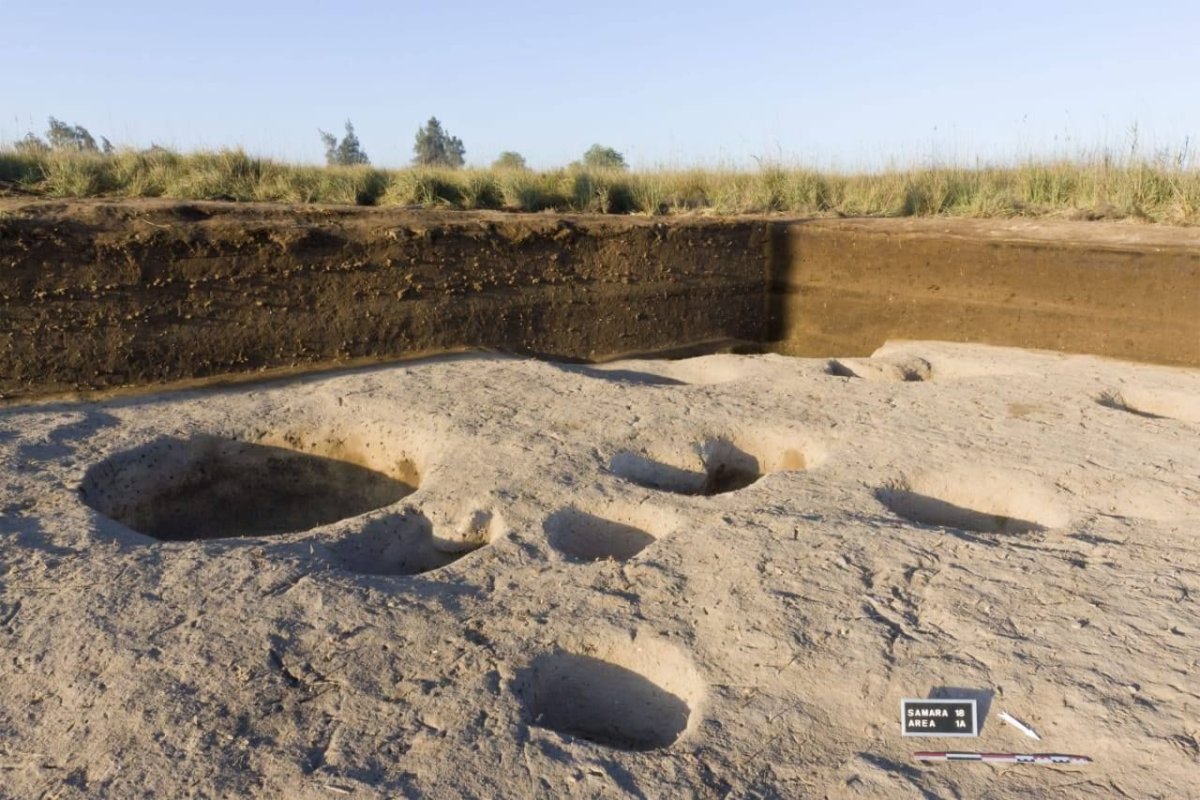Archaeologists have discovered the remains of a village that dates back some 2,500 years before the Giza pyramids were built, the Associated Press has reported.
In fact, the Neolithic village found in Tell el-Samara, about 85 miles north of Cairo, is one of the oldest ever unearthed in the Nile Delta, Egypt's Ministry of Antiquities stated.
Humans may have lived at the site from around 5,000 B.C.E, archaeologist Frederic Gio said in a Ministry news release. Gio's Egyptian-French team found stores containing animal bones and plant remnants, he said. Nearby pottery and stone tools also indicated stable human habitation many millennia ago.
Egyptian officials believe this latest discovery will help archaeologists learn more about the country's predynastic period and the earliest communities that lived in the region.
The village predates the pharaohs by about 2,000 years. In 3,100 B.C.E., King Narmer is thought to have united the kingdoms of Lower and Upper Egypt. He is widely considered to be the first king of a unified Egypt. A few hundred years and two dynasties later, a pharaoh named Djoser ushered in the Old Kingdom.
The Old Kingdom of Egypt, which lasted from 2686–2181 B.C.E., saw the construction of the iconic pyramids of Giza and the Great Sphinx. Recently, archaeologists uncovered a small sphinx statue in the city of Luxor, on a historic road lined with the magnificent beasts.
After the Old Kingdom collapsed, warring factions competed for control of Egypt. Eventually, Mentuhotep II came to power and ruled for 51 years. He presided over the start of the Middle Kingdom, which lasted until 1650 B.C.E.

Another spell of disarray followed, before Ancient Egypt entered what may have been its most powerful and prosperous period: the New Kingdom, which lasted from about 1570 to 1069 B.C.E. This period saw one of the country's most famous pharaohs, Tutankhamun, who ascended to power at the tender age of nine. Buried in the famous Valley of the Kings, the lavish and almost perfectly intact tomb of the boy king was discovered by Howard Carter back in 1922.
As the Associated Press noted, Egypt has been keen to share news of recent archaeological discoveries in an attempt to attract tourists back to the region after the 2011 Egyptian revolution. Tourism has waned following subsequent unrest.
كشÙت البعثة الأثرية المصرية الÙرنسية المشتركة برئاسة د. Ùردريك جيو، عن Ø£Øد أقدم القري المعروÙØ© Øتي الآن ÙÙŠ منطقة الدلتا...
Posted by ‎Ministry of Antiquities وزارة الآثار‎ on Sunday, September 2, 2018
Uncommon Knowledge
Newsweek is committed to challenging conventional wisdom and finding connections in the search for common ground.
Newsweek is committed to challenging conventional wisdom and finding connections in the search for common ground.
About the writer
Katherine Hignett is a reporter based in London. She currently covers current affairs, health and science. Prior to joining Newsweek ... Read more
To read how Newsweek uses AI as a newsroom tool, Click here.








